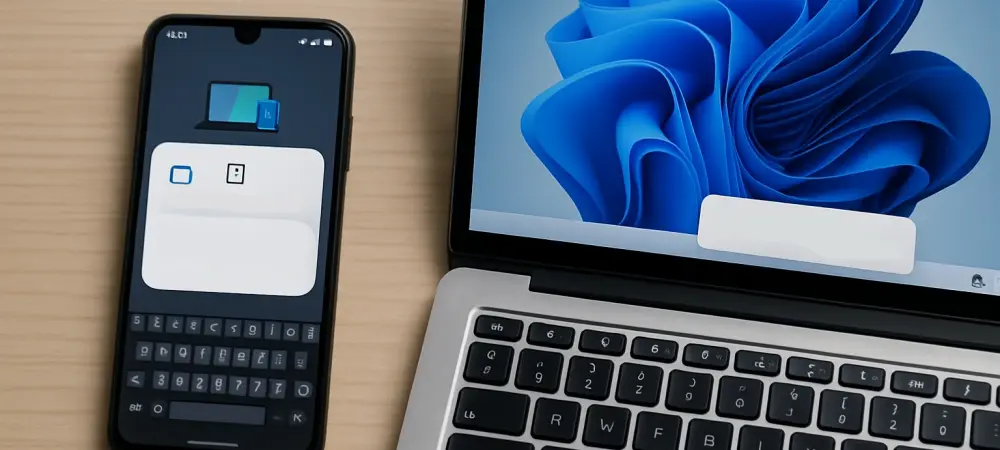In an era where seamless connectivity between devices has become a cornerstone of productivity, Microsoft is taking significant strides to bridge the gap between Windows 11 and Android ecosystems. Imagine working on a document on a PC, copying a crucial snippet of text, and instantly pasting it into a message on an Android phone without missing a beat. This kind of fluid interaction is no longer just a dream, as a new feature in development for Windows 11 promises to make clipboard sharing between these platforms a reality. Discovered in a recent preview build, this capability signals Microsoft’s ongoing commitment to enhancing cross-device functionality. As users increasingly rely on multiple devices for work and personal tasks, such integrations are becoming essential for maintaining efficiency and reducing friction in digital workflows. This development marks another chapter in the evolving relationship between Windows and Android, setting the stage for a more cohesive user experience.
Seamless Data Transfer Takes Shape
The core of this emerging feature lies in a specific toggle labeled “Access PC’s clipboard,” nestled within the Manage mobile devices section of Windows 11 settings. This option enables users to copy content on their PC and have it readily available for pasting on a linked Android device, streamlining the process of transferring text or other data. Initially spotted a few weeks ago, the feature briefly vanished from preview builds, sparking speculation about its fate. However, its return in the latest Dev build reaffirms that Microsoft is actively refining this tool. This clipboard sharing capability is a testament to the company’s focus on user convenience, mirroring successful cross-platform integrations seen in other ecosystems. While still in the experimental phase, the feature’s potential to simplify tasks across devices is evident, catering to a growing demand for effortless interoperability in today’s multi-device world.
Compatibility and Challenges in Development
Testing has shown promising results with this clipboard sharing feature, particularly with popular Android keyboards such as Gboard and Samsung’s native keyboard, indicating a wide range of compatibility across different setups. However, not all integrations are flawless yet, as some issues have been noted with SwiftKey, a widely used keyboard app. Given that this functionality remains in a developmental stage within preview builds, there is ample time for Microsoft to iron out these kinks before a broader rollout. Such hiccups are expected in early testing phases and highlight the iterative nature of software development. The emphasis on resolving compatibility challenges underscores a broader trend of prioritizing user experience in cross-device interactions. As Microsoft continues to refine this feature, the goal appears to be ensuring a smooth and reliable tool that enhances productivity for users who juggle tasks between Windows 11 PCs and Android devices.
Future of Cross-Platform Productivity
Looking back, the journey of integrating Windows 11 with Android through features like clipboard sharing reflects Microsoft’s persistent drive to meet user needs for seamless digital experiences. The successful testing with major Android keyboards and the reappearance of this feature after a temporary absence point to a dedicated effort in overcoming initial setbacks. As development progresses, the focus remains on eliminating compatibility issues to deliver a polished tool. Moving forward, users can anticipate further enhancements in cross-platform functionality, potentially expanding beyond clipboard sharing to other innovative integrations. Keeping an eye on upcoming preview builds will be crucial for those eager to adopt such features early. Additionally, exploring current tools like the Link to Windows app could provide immediate benefits while awaiting the final release of this promising capability.

